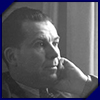During the years’50 to 60, his foreign visits increased:
- in Europe : Austria, Belgium, Bulgaria, Germany, Grece, Holland, Italy, Luxembourg, Poland, Roumania, Spain, Switzerland, Tchécoslovaquia, United Kingdom, Yougoslavia;
- in Asia : India, Japan, Libanon, Turkia;
- in Africa : Algeria, Egypt, Marocco;
- in America : Mexico, USA. He is invited to introduce and often to conduct his works as well as to give lectures. He also conducts the music of his contemporaries. So, in Madrid he gives the first performance of the Création du monde by Darius Milhaud ; in Zagreb (Croatia), he conducts Jean Françaix, Darius Milhaud, Jean Rivier,… ; in Mexico City, Henri Dutilleux, Albert Roussel
- 1951
Stage music for Antigone by Sophocles and orchestration of Lully’s score of the Bourgeois gentilhomme for the new production at the Comédie-Française.
He is awarded the Grand Prix musical de la Ville de Paris.
First performance of the Concerto pour piano by Lucette Descaves conducted by Jolivet in Strasbourg, which became one of the famous battlegrounds in the history of XXth century music…
- 1952
He composes the Concerto pour harpe et orchestre de chambre which is first performed by Lily Laskine and conducted by Hans Rosbaud.
- 1953
First long-play record of the Concerto pour piano, the Concertino pour trompette and the Andante pour cordes, produced by Ducretet-Thomson, which receives a “Grand Prix du disque” in 1954.
- 1954
Orchestration for Lully’s score for the Amants magnifiques, stage music for the Prométhée enchaîné by Aeschylus, adapted by Jean De Beer.
First visit to USSR : he travels with the Comédie-Française and makes his first contacts with the Composers Union (Guillels, Katchaturian, Kabalewski, Mouradeli, Oistrakh,…).
First performance of his First Symphony in Haïfa (Israel). The two other symphonies will also be given their first peformance abroad as well as a number of other works including : the Concerto pour harpe at the Festival in Donaueschingen (Germany)in 1952 ; the Suite transocéane in Louisville (USA) ; Épithalame in Venise (Italia) in 1956 ; the Prélude pour harpe in USA in 1966 ; Arioso barocco in Munich (Germany) in 1971 ; the Flèche du temps in Berne (Switzerland) in 1973 ; Pipeaubec in Hambourg in 1987. André Jolivet’s compositions first performed abroad.He composes the Concerto pour basson, orchestre à cordes, harpe et piano and the Second concerto pour trompette.
- 1955
Study of Beethoven published by Éditions Richard-Masse.
Second long-play record produced by Véga of the Concerto pour ondes Martenot and the Concerto pour harpe.
One hundredth performance of Guignol et Pandore at the Opéra de Paris.
- 1956
First performance of the Vérité de Jeanne outside Joan of Arc’s house in Domrémy (France) ; this oratorio was commissioned by Abbé Carl de Nys on the five hundredth anniversary of the process for the rehabilitation of Joan of Arc.
He composes the Sérénade pour deux guitares, first performed by Ida Presti and Alexandre Lagoya at the Salle Gaveau, in Paris. - 1957
Founder member of the “Comité national de la musique”, of which he becomes vice-Président in 1970.
N°33 of the review Zodiaque is dedicated to Jolivet. - 1958
First performance at the Opéra Comique in Paris of the ballet Concerto based on the Concerto pour piano choreography by Georges Skibine (scenery and costumes by André Delfau). Received the Grand Prix de la critique lyrique et chorégraphique.
- 1959
Promoted technical adviser to André Malraux at the Direction générale des Arts et Lettres du ministère de la Culture ; he occupies this position until 1962.
First visit to Japan.
Creation of the Centre Français d’Humanisme Musical (CFHM) in Aix-en-Provence. He will lead this academy for five consecutive years, until 1963. Sessions take place in July, during the Aix-en-Provence and Avignon Festivals. Each morning, Jolivet teaches composition to the participants ; each afternoon lectures are given by personalities from the worlds of music and art such as : Alain Daniélou, Max Deutsch, Antoine Goléa, Maurice Jarre, Abraham Moles, Michel Philippot, Francis Poulenc, Georges Skibine, Jean Vilar, Iannis Xenakis, ….
He is invited to the Musical Academy in Saint-Jacques de Compostella (Spain) where he will return in 1966.
- 1960
Jean Vilar, with whom he has been in contact since 1941, asks Jolivet to write a new score for his production of Antigone by Sophocles. His work with Vilar will be different from score of 1951 and influenced by his knowledge of primitive and ancient music.
First stage performance of Dolorès ou le Miracle de la femme laide at the Opéra de Lyon.
- 1961
First performance at the Opéra Comique in Paris of the ballet Marines, with the music of the second Concerto pour trompette, with choreography by Georges Skibine, sets and costumes by Bernard Daydé..
- 1962
First performance of the Messe “Uxor tua” in the Église Saint-Séverin in Paris written for his oldest son’s wedding.
Member of the Jury of the Prix de Rome, awarded by L’Institut des Beaux-Arts.
On october 26th, he is elected President of L’Association des Concert Lamoureux, he was maintained in this position until 1968.
First performance of the Premier Concerto pour violoncelle by André Navarra and the Orchestre national conducted by Dimitri Chorafas.
He is appointed member of the Commissions for IVth and Vth Plans where he works with François Bloch-Laîné and a number of personalities drawn from civil society.
